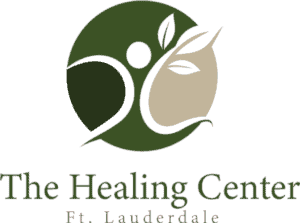The disease of addiction affects millions of people throughout the country and can wreak havoc on one’s physical and mental well-being, as well as his or her family relationships and career. Anyone who is looking for a Miami drug rehab facility in Florida will want to check out the programs that The Healing Center offers.
The addiction specialists at The Healing Center understand how difficult it is for someone to stop abusing alcohol and drugs. Quitting alcohol and drugs on one’s own should not be attempted. It can be unsafe due to the potentially dangerous physical withdrawal symptoms that can occur. Drug and alcohol withdrawal symptoms can range from mild to severe and every case is unique to the individual and their history of drug and alcohol use. Miami drug rehab centers, like The Healing Center, can provide the medical and psychological care that is needed in order to recover from substance use disorders.
The Healing Center is located in the heart of South Florida and provides a variety of programs and therapies that will suit your schedule, needs, and circumstances. With our help, the healing journey from alcohol and drug addiction is simply a phone call away.
Addiction Treatment Centers Near Miami Beach, FL
If you are ready to stop using drugs and alcohol, then you may be wondering if you should stay locally or travel to receive treatment. There is no “right” way to answer this question. For some, remaining close to friends and family is helpful. For others, a change of environment helps them create a new mindset. Regardless, the most important thing to consider is the quality of care offered at the treatment center you are planning to go to.
At The Healing Center we provide evidence based therapies that will help you conquer your addiction and heal from past traumas. Furthermore, we are equipped to treat dual diagnosis and mental health disorders. Our peaceful and calm treatment environment offers the tools you need to heal. Additionally, you will be able to build a network of support through connections with your peers and our alumni during your stay.
No matter where you are located, we can help you. Our admissions team will assist you with travel arrangements in order for you to get the help that you need. Call us today to learn about our inpatient and outpatient programs in South Florida.

Request a Confidential Callback
How Much Does Miami Drug Rehab Cost?
One of the first questions that most people ask when it comes to addiction treatment is how much does rehab cost? The answer to this question depends on a number of different factors. First, it depends on what type of treatment you are receiving. Detox, rehab, and outpatient programs all range in price. Second, it will depend on how long you are planning to stay in treatment. Drug and alcohol treatment programs can last from just a few weeks to 90 days. The length of stay normally depends on the severity of your addiction, if you have received treatment in the past, and the cost of treatment.
These days, health insurance policies cover addiction treatment. Some policies will cover the entire cost and in other cases they will cover a portion of the care. If health insurance is only covering some of the cost, then it is important to discuss the financial arrangements that can be made with the rehab center. If you are a military service member or family of one, then your care may be covered through Tricare. If you have questions about how much rehab costs, reach out to The Healing Center’s admission team.


How Does Drug Detox Work?
It is common for those who are seeking help with substance abuse to wonder how drug detox works. Drug detox, also known as detoxification, is the process by which the body rids itself of drugs and alcohol. Typically, it is the first step in addiction treatment and is designed to help individuals safely and gradually withdraw from drugs or alcohol. The main goal of detox is to manage withdrawal symptoms and minimize potential health risks that can occur.
The specific process and duration of drug detox varies depending on the type of drug, the individual’s overall health, and the severity of the addiction, and the detox setting. However, drug detox usually involves the following:
- Evaluation: The individual’s physical and mental health is assessed by medical professionals to determine the appropriate course of treatment. This may include a physical exam, lab testing, and psychological evaluations.
- Stabilization: The individual is gradually weaned off the drug or substance of abuse, usually through a tapering process, which involves reducing the dosage of the drug over time to minimize withdrawal symptoms. Medications are normally used to manage the withdrawal symptoms that occur throughout this process.
- Supportive care: Medical and mental health support is provided to manage the physical and emotional symptoms of withdrawal. This may include 24/7 monitoring, administration of medications, and emotional support from trained professionals such as therapists.
- Education and counseling: Individuals may receive education about addiction, relapse prevention, and coping skills to manage cravings and triggers. Counseling and therapy may also be provided to address the psychological and emotional aspects of addiction.
- Aftercare planning: As the detox process progresses, individuals may work with a treatment team to develop a plan for ongoing care and support, which may include further addiction treatment, therapy, counseling, and participation in support groups or other recovery programs.
It’s important to note that drug detox alone is not considered a complete treatment for addiction. It is typically the first step in a comprehensive addiction treatment program that may also include therapy, counseling, behavioral interventions, and ongoing support to help individuals achieve and maintain recovery from addiction.
How Long Can I Expect To Stay At A Miami Drug Rehab?
The duration of rehab, or addiction treatment, can vary depending on several factors, including the type and severity of addiction, the individual’s progress and response to treatment, the specific treatment program, and the individual’s personal circumstances. However, in general, rehab programs can range from a few weeks to several months or even longer.
Here are some common types of rehab programs and their typical durations:
- Inpatient or residential rehab: Inpatient or residential rehab programs typically require individuals to live at a treatment facility for a period of time, usually ranging from 28 days to several months. These programs provide a highly structured and immersive environment, with 24/7 medical and psychological support, and may include individual and group therapy, counseling, education, and other therapeutic interventions.
- Outpatient rehab: Outpatient rehab programs allow individuals to live at home and continue with their daily activities while attending treatment sessions at a treatment facility. The duration of outpatient rehab programs can vary, but they typically involve regular sessions that may be scheduled for several hours per day, multiple days per week, for a period of several weeks to several months.
- Intensive outpatient programs (IOP): Intensive outpatient programs are a type of outpatient rehab that involves more frequent and intensive treatment sessions, typically requiring individuals to attend treatment sessions for several hours per day, multiple days per week, for a period of several weeks to several months.
- Partial hospitalization programs (PHP): Partial hospitalization programs are a type of outpatient rehab that involves individuals attending treatment sessions for several hours per day, typically 5 days per week, while living at home. PHP programs may last for several weeks to several months.
- Extended care or sober living programs: Extended care or sober living programs provide individuals with a supportive living environment after completing an inpatient or outpatient rehab program. These programs typically last for several months to a year or more, and focus on continued recovery support, relapse prevention, and developing healthy coping skills for sustained sobriety.
It’s important to understand that the duration of rehab can vary depending on the individual’s needs and progress in treatment. Treatment plans are often tailored to the individual, and may be adjusted based on their progress and ongoing assessment by a treatment team. It’s best to talk with a qualified healthcare professional or addiction treatment provider to determine the most appropriate duration of rehab for an individual’s specific needs.


Does My Insurance Offer Coverage for Rehab?
Many insurance plans, including private health insurance, employer-sponsored plans, and government-funded plans provide coverage for addiction treatment and rehab services to varying extents. The coverage for rehab services may depend on your specific insurance policy, the type of treatment needed, and the provider that you choose.
Under the Affordable Care Act (ACA), also known as Obamacare, insurance plans are required to cover mental health and substance use disorder services as essential health benefits. Meaning, that insurance plans must cover rehab services to some extent, although the exact coverage details may vary depending on the plan.
When determining the coverage for rehab, insurance plans may consider factors such as medical necessity, the type and level of care needed, the duration of treatment, and the provider’s network status. Some insurance plans may require prior authorization or pre-approval for rehab services, while others may have specific limitations on the number of days or visits covered, or may require copayments, deductibles, or coinsurance.
It’s important to review your insurance policy or contact your insurance provider directly to understand your specific coverage for rehab services. You can check your insurance plan documents, contact the insurance company’s customer service, or consult with a healthcare professional or addiction treatment provider who can help you understand your insurance coverage and options for rehab.
If you have insurance coverage for rehab, it’s also important to be aware of any potential out-of-pocket costs, such as copayments, deductibles, or coinsurance, and to understand any limitations or restrictions that may apply. If your insurance does not cover rehab services or if you face challenges in obtaining coverage, you may explore other options, such as self-pay, financing, or seeking assistance from charitable organizations or local resources that provide financial support for addiction treatment. If you have questions about how to pay for rehab, then contact The Healing Center’s admission team. We will verify your insurance benefits and help you come up with a plan on how to cover any out of pocket cost that you may have.






